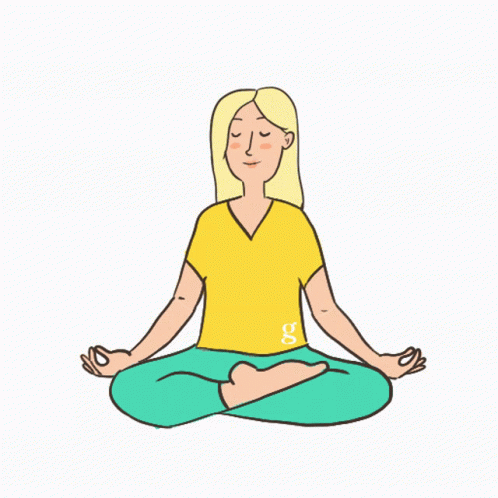Community /
Women's Issues
About Us
Get Started
Saturday
November 18th
2 days ago
November 19th

October 30th

October 19th

September 7th

July 1st
June 25th
May 10th
May 3rd

March 8th
February 1st
January 15th
About the Women’s Issues Community
Welcome to the Women’s Issues Community — a dedicated space for discussing topics related to women's health, well-being, and experiences. Our goal is to provide a supportive and respectful environment where members can connect, share, and learn from each other.
How Can You Contribute?
You can make a significant difference in our community by:
- Responding to Threads: Engage with ongoing discussions by offering your insights or support. Your contributions can help others feel understood and valued.
- Sharing Personal Experiences: If you’re comfortable, share your own experiences to offer support and solidarity. Your stories can inspire and help others navigate their own journeys.
- Joining or Initiating Discussions: Feel free to start new discussions on topics relevant to women’s issues or join existing conversations. Your voice and perspectives are important.
- Becoming a Forum Leader: If you’re passionate about helping others and managing community discussions, consider joining us as a Forum Leader. Check out this thread for more information on how to get involved.
Stay Updated:
To keep up with new discussions and updates, you can join our tag list. This will notify you whenever there is a new thread or important update within the community.
Thank you for being a part of our community. Together, we can foster a supportive and informative space for all women.
Community Guidelines
Community Guidelines for Women’s Issues Community
Welcome to the Women’s Issues Community! To ensure a respectful and supportive environment for everyone, please adhere to the following guidelines:
- Respect and Kindness:
- Treat all members with respect and kindness. Disagreements are natural, but personal attacks, harassment, or any form of discrimination will not be tolerated.
- Be considerate of different perspectives and experiences. This community thrives on support and understanding.
- Discrimination:
- Sexism, misogyny, or any form of discrimination is strictly prohibited. Everyone deserves to be treated with respect.
- If you encounter content or behavior that violates this principle, please report it immediately.
- Relevance to Women’s Issues:
- Please keep discussions relevant to women’s issues and topics related to health, well-being, and experiences unique to women.
- For discussions not related to women’s issues, please use appropriate forums.
- Trigger Warnings:
- Please note "TW" (Trigger Warning) at the beginning of your post if the content may be sensitive or triggering for some members. This helps others prepare for or avoid content that might affect their well-being.
- Examples of content that may require a trigger warning include discussions on trauma, abuse, or other sensitive subjects.
Thank you for being a part of the Women’s Issues Community. By following these guidelines, you contribute to a supportive environment for everyone. If you have any questions or concerns, please reach out to the community leaders.
Community Leaders
Community Mentor / Teen Community Star
Forum Supporter
Community Resources
Resources
Below are some essential resources related to women’s health, safety, and well-being:
International List of Sexual & Domestic Violence Agencies
Find a comprehensive list of agencies worldwide that provide support for sexual and domestic violence:
Guide Exclusively for Listeners on Sexual Abuse
For in-depth support and information on sexual abuse, explore this specialized guide:
Mental Health Resources
- National Alliance on Mental Illness (NAMI): Provides education, support, and advocacy for mental health issues.
- Mental Health America (MHA): Offers resources for mental health education, support, and advocacy.
USA Crisis Helplines
- Crisis Text Line: Text HOME to 741741 for free, 24/7 support from trained crisis counselors.
- National Domestic Violence Hotline: Call 1-800-799-7233 or text LOVEIS to 22522 for confidential support and resources.
Health and Wellness
- Planned Parenthood: Offers a range of health services and resources for reproductive and sexual health.
- Women’s Health.gov: Provides information on women’s health topics, including fitness, nutrition, and wellness.
Helpful Forum Posts
Explore these informative threads to gain insights and connect with others on important topics:
- Recognizing and Leaving Unhealthy Relationships: Learn how to identify and address unhealthy relationships with tips and personal stories.
- Understanding Menopause: Let's Navigate This Journey Together: Discuss menopause, share experiences, and find advice on managing symptoms.
- Menstruations 101: Understanding Periods, Demystifying Taboos, and Practical Tips: Get detailed information about menstruation, including practical advice and demystifying common taboos.
- Understanding and Addressing Postpartum Depression: A Call for Support: Find support and resources related to postpartum depression, including personal experiences and advice.
Feel free to explore these resources for support, information, and assistance. If you have additional resource suggestions or need further help, please contact the community leaders or moderators.

